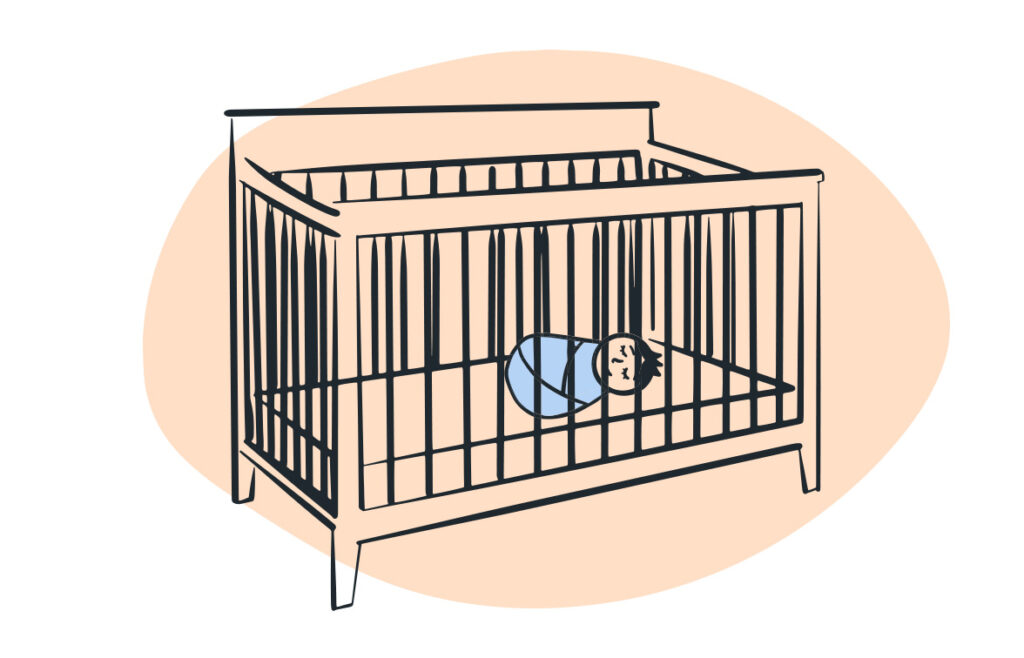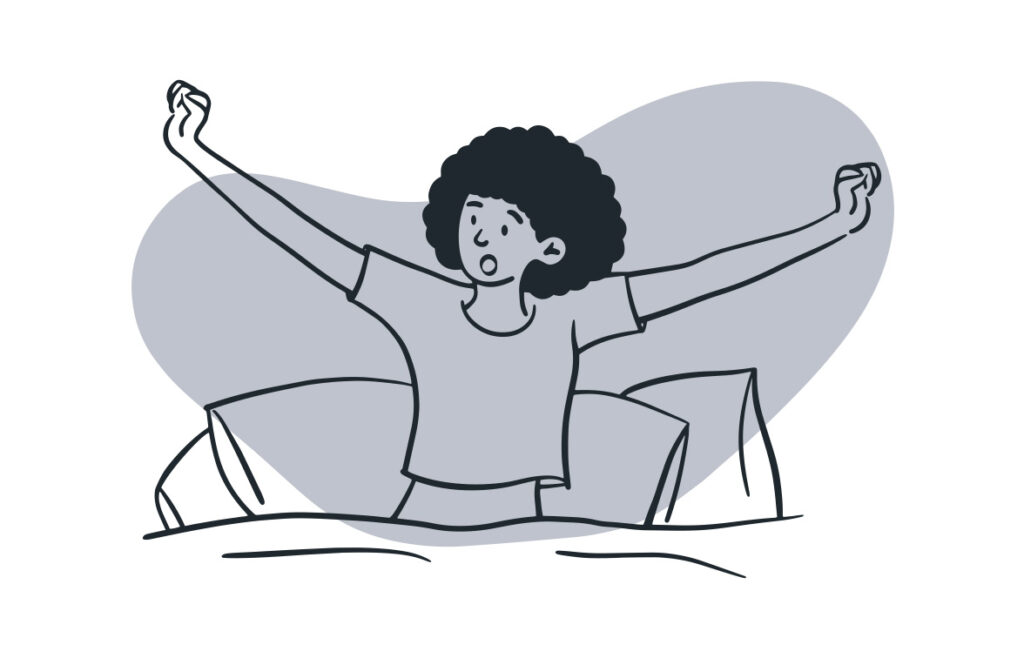A Parent's Guide To Better Sleep: How Sleep Deprivation Affects Parenting
Disclosure: By clicking on the product links in this article, Mattress Nerd may receive a commission fee at no cost to you, the reader. Read full disclosure statement.
Ideally, adults are supposed to get 7 to 9 hours of sleep each night. It can be tough for anyone to meet this recommendation, especially new parents.
Infants need constant care and often wake up multiple times throughout the night. This can have a significant impact on a new parent’s sleep cycle. As a result, you might experience exhaustion, impaired judgment, and poor mood. Here’s how to get your sleep back on track.

How Does Your Sleep Affect You and Your Child?
Infants don’t follow the same sleep patterns as adults. That means parents have to work around what’s best for their babies. This can lead to lots of late-night wake-up calls.
Poor sleep can have a negative impact on anyone’s lifestyle, but it can be especially hard for new parents. The 2019 study found that parents don’t return to pre-baby sleep levels until their child is six-years-old. But no one should be expected to live on fumes for 6 years.
Even though it can feel impossible, you can learn to prioritize your child’s well-being while meeting your own needs. Think of it like this: You have to be there for yourself in order to be there for them. Experts encourage new parents to maintain healthy sleep habits as much as possible.
Healthy sleep is essential for a person’s general well-being. It allows you to:
- Make decisions
- Form memories
- Grow and heal tissues
- Bolster the immune system
- Learn or process information
- Give your heart and vascular system a break
New Mom Sleep Deprivation
Research shows that men lose an average of 13 minutes of sleep per night after their baby is born. But women lose over an hour of sleep each night, according to a 2019 study. That’s a significant gap.
Due to the lack of consistent sleep, new moms are at an increased risk of:
- anxiety
- insomnia
- depression
- poor quality sleep
- daytime sleepiness
Sleep deprivation may also worsen postpartum depression symptoms, which affects one in eight people who have had a baby, according to the Centers for Disease Control and Prevention (CDC).
How To Avoid Sleep Deprivation
Infants have shorter sleep cycles and usually sleep 1 to 3 hours at a time. That means you’ll likely be awoken multiple times throughout the night. Thankfully, there are ways you can avoid sleep deprivation and increase your sleep quality.
The National Institutes of Health (NIH) suggests trying to sleep when your baby sleeps. Of course, this can be a challenge when juggling work, daily tasks, and childcare. But even power naps and 10 to 20 minutes long short naps can help you feel refreshed.
Studies also show that naps can reduce stress levels and improve your mood. They can give you more time to focus on the things that are important to you, like spending time with your little one.

Sleep Tips For New Parents
Finding a good sleep groove can take time, but it’s definitely possible, especially as your baby gets older. Here are some tips to help get your sleep back on track.
- Seek support. Everyone needs help sometimes. So don’t feel embarrassed about asking your family or friends for support. You may even want to hire someone to assist you, and that’s totally fine, too!
- Try to start sleep training at 6 months. Research shows that sleep training can help your baby sleep better, which means you’ll sleep better.
- Pump before bed. If you breastfeed, you may want to pump before bed. Your partner or someone helping out can feed your baby a bottle, and you can get some more shuteye.
- Know when to say “no.” It’s important to set boundaries to help you maintain good sleep habits. It’s okay to say “no” to people who want to visit if it messes with your baby’s sleep schedule.
- Talk with a doctor. Your doctor can determine if your sleep symptoms are typical postpartum tiredness or something that might require more attention. They can also help you treat conditions like insomnia or postpartum depression.
- Stick to a bedtime routine. Even if you know you’ll be woken up at night, you should still stick to a bedtime routine. Let this time be yours to unwind, relax, and regroup.
- Get your baby settled in for the night. Make sure your baby isn’t fussy when you put them down for the night. If all of their needs are met before bed, there’s a better chance they’ll sleep for longer stretches.
Takeaway
Sleep is a vital part of your baby’s growth and development, but your sleep is also important! Without healthy sleep, bringing your A-game to your kids can be challenging.
Try to prioritize your sleep as often as you can. To do this, don’t be afraid to ask for support from your partner, friends, or family. Also, reach out to your doctor if your sleep concerns persist over a few weeks. They can ensure your fatigue is due to typical postpartum lifestyle changes and not an underlying condition like insomnia.
Source List
Bedtime Habits for Infants and Children. (n.d.) https://medlineplus.gov/ency/article/002392.htm
Brooks A, et al. (2006). A Brief Afternoon Nap Following Nocturnal Sleep Restriction: Which Nap Duration Is Most Recuperative? https://pubmed.ncbi.nlm.nih.gov/16796222/
Creti L, et al. (2017). Sleep in the Postpartum: Characteristics of First-Time, Healthy Mothers. https://pubmed.ncbi.nlm.nih.gov/29181201/
Depression Among Women. (2022). https://www.cdc.gov/reproductivehealth/depression/index.htm
Faraut B, et al. (2015). Napping Reverses the Salivary Interleukin-6 and Urinary Norepinephrine Changes Induced by Sleep Restriction. https://pubmed.ncbi.nlm.nih.gov/25668196/
Hirshkowitz M, et al. (2015). National Sleep Foundation’s Sleep Time Duration Recommendations: Methodology and Results Summary. https://pubmed.ncbi.nlm.nih.gov/29073412/
Korownyk C. (2018). Infant Sleep Training: Rest Easy? https://www.ncbi.nlm.nih.gov/pmc/articles/PMC5962992/
Moms’ Mental Health Matters. (2022). https://www.nichd.nih.gov/ncmhep/initiatives/moms-mental-health-matters/moms
Richter D, et al. (2019). Long-term Effects of Pregnancy and Childbirth on Sleep Satisfaction and Duration of First-Time and Experienced Mothers and Fathers. https://academic.oup.com/sleep/article/42/4/zsz015/5289255